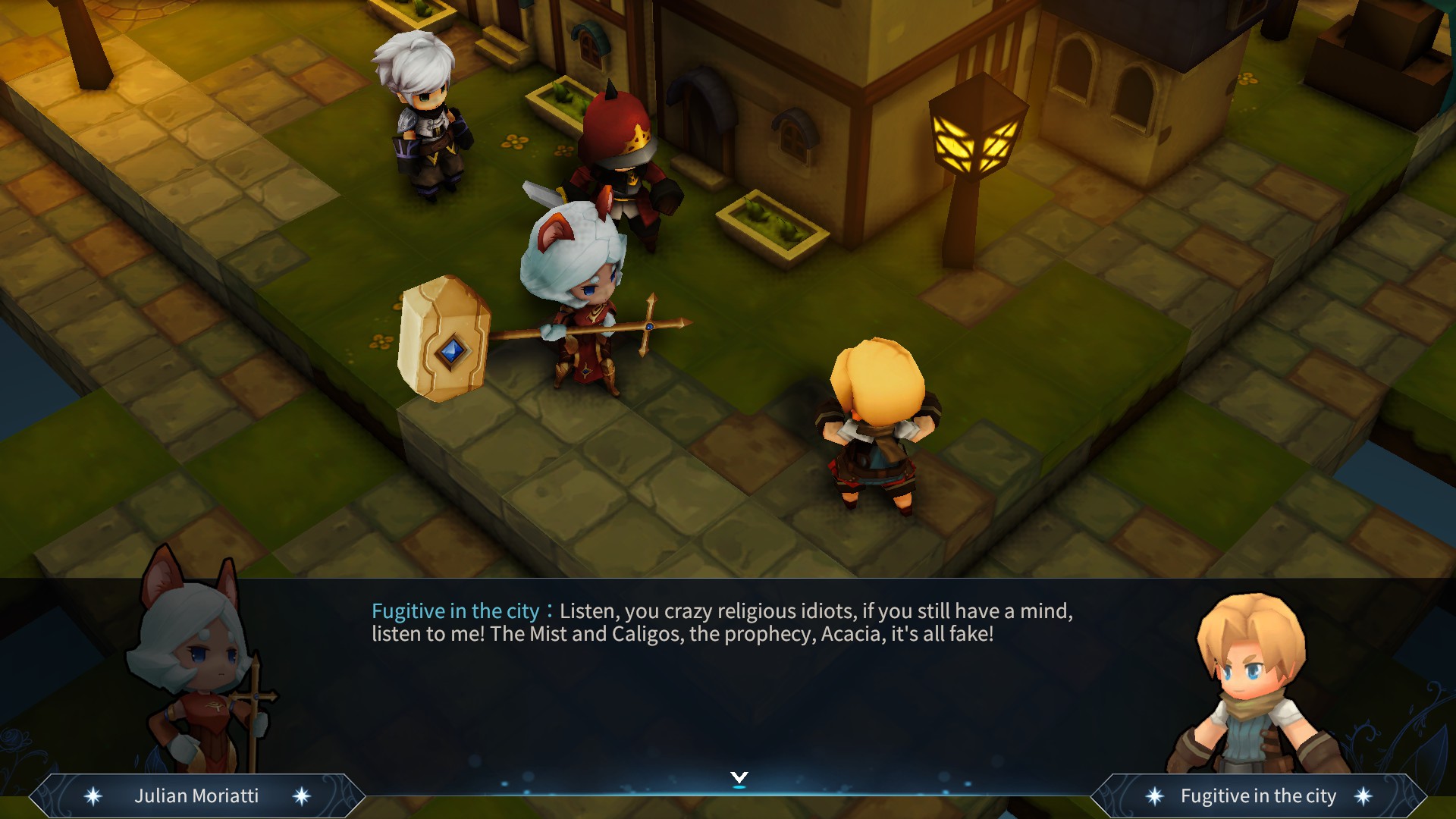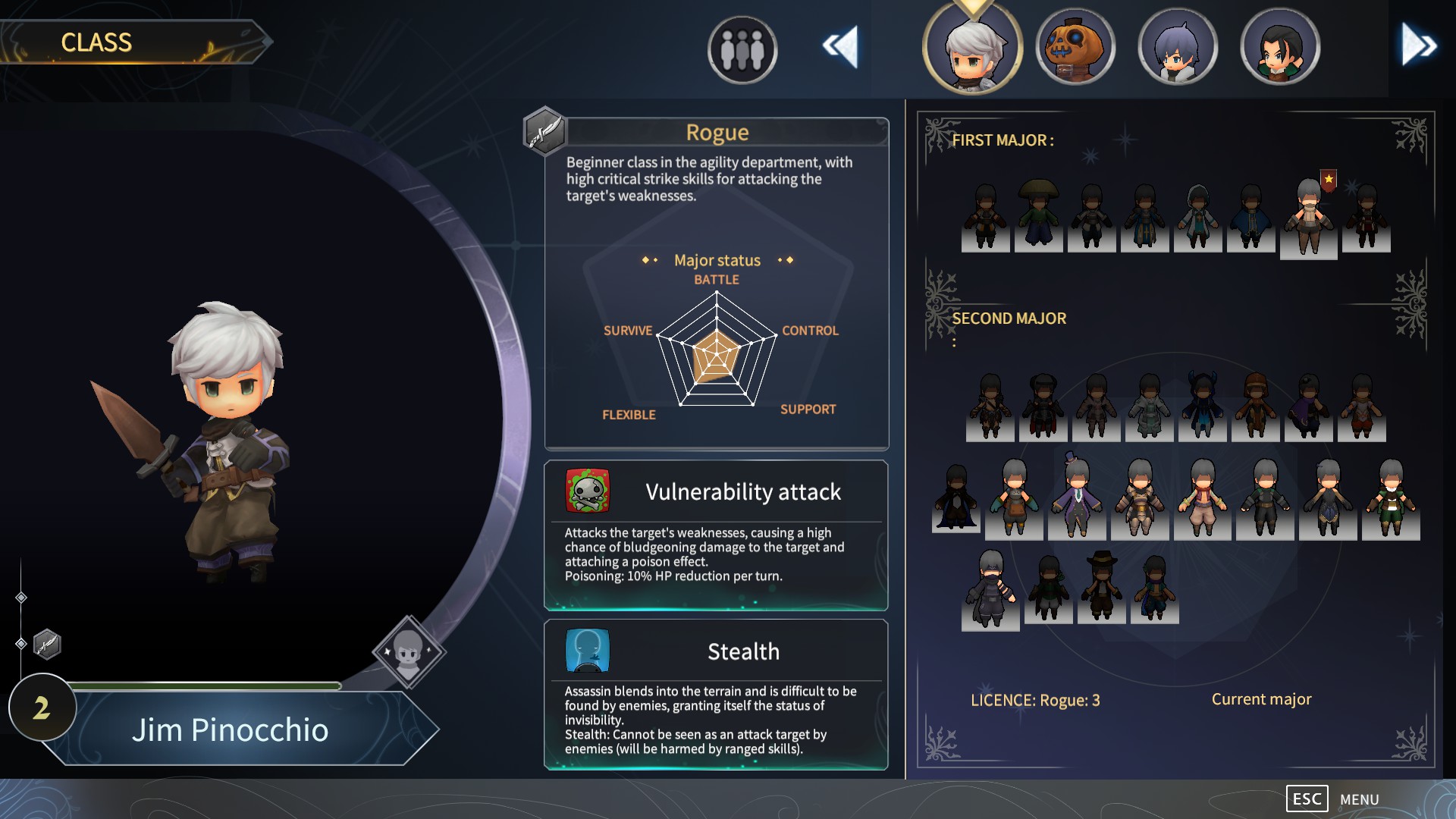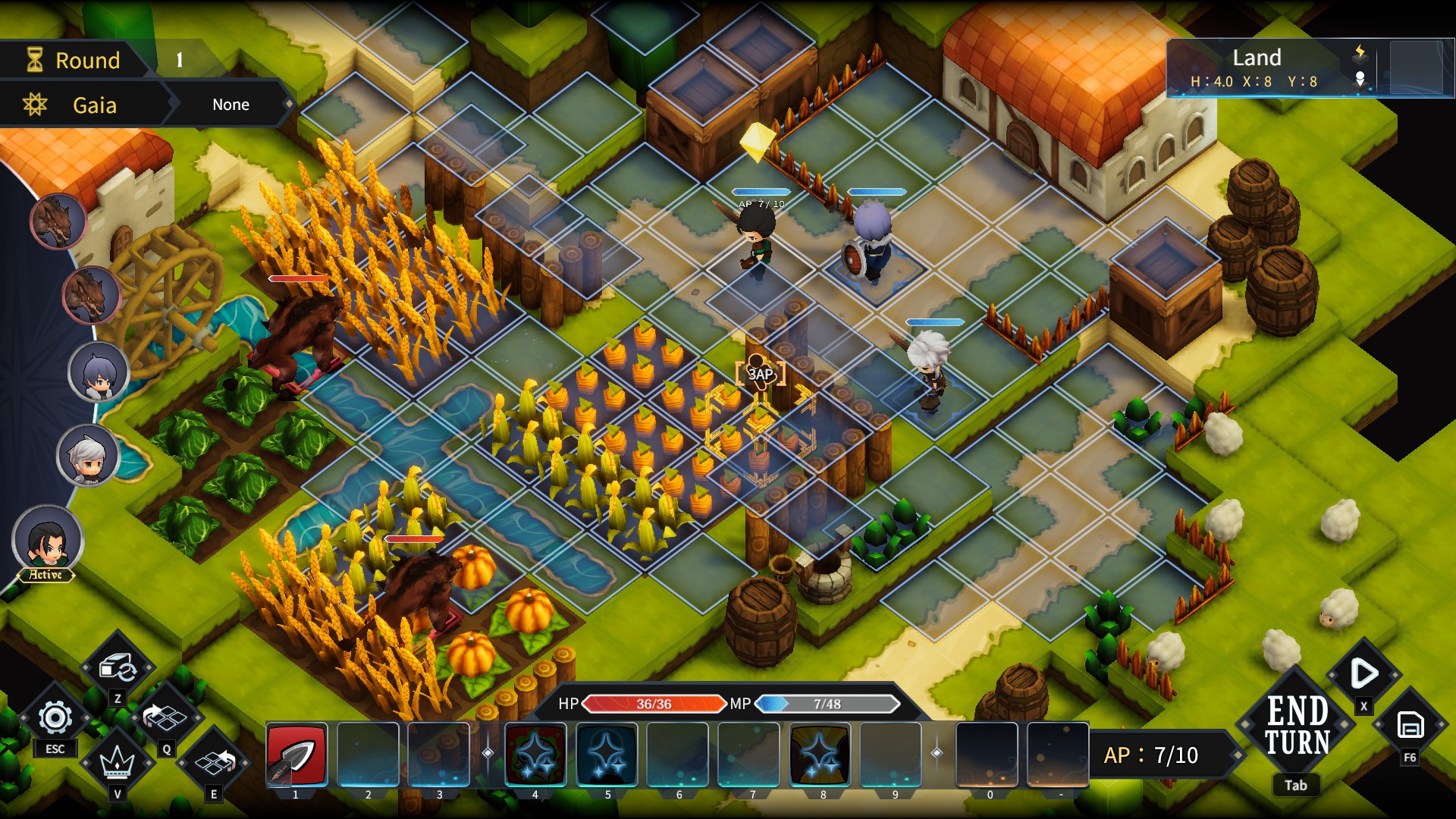Myth of Mist Legacy – Mad as a bag of cats
I have no idea what's happening but I'm murdering guards anyway
Myth of Mist Legacy has some great combat but the translation makes the plot impossible to follow.
Strategic RPGs aren’t something I’m hugely au fait with. I’m not a huge follower of the likes of Fire Emblem and its ilk, but it’s a genre that I feel is reasonably simple to comprehend, as at their heart they are turn-based tactics games, but with character growth and an emphasis on plot. Myth of Mist Legacy offers a deep RPG with multiple classes, loads of choice, and a number of endings depending on the choices you make along the way. Sadly though, those choices are unbelievably confusing at this point, and regardless of how fun the combat is, the loss of a huge portion of the game is quite stinging.
From what I’ve managed to gather, the story revolves around a family of some significance in a major city. Many years ago, monstrous creatures evolved from a mysterious mist and attacked the city, resulting in the loss of many lives. They were driven back and the heroes who saved the city are remembered in a festival. As this year’s festival approaches, new waves of monsters begin to appear, and you are tasked with saving the day through combat and conversation. The people you save and the words you say will alter the path of the city and indeed the entire world.
Myth of Mist Legacy was released in China in early 2022, and this late October release is a localised version, with an English translation and an updated UI. The translation though is all over the place. Initially, I had a grasp of what was going on, but towards the end of the first chapter the wheels had entirely come off. Many of the sentences make sense in isolation, but the conversations they’re included in don’t flow well at all.

This is compounded by the fact that sometimes the wrong character portrait would appear meaning I had no idea who was saying what to who. Occasionally characters would even appear to be speaking to themselves. On one occasion I seemed to be making a dialogue choice as though I was a religious leader rather than the middle second brother of my family. Madness. Seeing as the plot and the multiple endings are a core selling point of this admittedly fairly lengthy game, it’s hard to overlook these significant difficulties in enjoying the game. Perhaps in its native Chinese it’s easier to follow.
The issues with the translation don’t stop there either, as there are some instances translations just aren’t done. Menu buttons still appear in Chinese meaning I’d have to guess which button was which. Words run out of space in dialogue and menu buttons due to the English words being longer than the Chinese ones. I didn’t know what some abilities did simply because I couldn’t get to the end of the sentence. I commend any attempt to localise a game, but this localisation needs some significant work before it can be recommended in any way.
Thankfully, the actual gameplay itself is quite enjoyable. Combat is grid-based and has your character Jim leading a party of fighters against a number of different foes. You’ll move your combatants around the grid using an action point system to attack and cast spells with the aim of defeating all your foes normally. Attacks from the side or behind are more likely to land, so positioning is key, and you’ll want to make sure your people are facing the right way to deal with incoming blows. Magic doesn’t deploy instantly, more often happening in the next round. If the target of a spell has moved then the effects will be lost, so there’s some real strategic thinking needed here. You could press the attack, but then your planned healing spell may be wasted. Perhaps your archer will charge a powerful attack only for the target to move before it triggers. I really liked this as it forced me to think about my entire force rather than working with individuals.

Those individuals can be chopped and changed to your heart’s content too. Not only are there a lot of different characters to add to your team, but each one has an array of classes and subclasses to choose from. If you have found the correct licences, you can specialise each class in a number of ways. Spellcasters can be offensive, defensive, healing-focussed and more, whilst an assassin can be stealthy, quick, or a critical hit machine. How you access these subclasses isn’t adequately explained, but you can figure out a lot of it via experimentation. There are so many options for specialisation, that spending time doing side quests and exploring the initially small open world can certainly be rewarding as you pick up more and more licences.
Now, the UI isn’t amazing as I’ve already mentioned, but Myth of Mist Legacy’s overall presentation is lovely. I adored the art style, which evokes memories of those classic PS1 era RPGs like Wild Arms and Brave Fencer Musashi. I was quickly reminded of Silver thanks to the polygonal but detailed design of the world and its characters. I find that the low-poly art style is a bit hit and miss in the modern era, but this is a game that absolutely nails it. Attacks, spells, and weapon effects are less impressive though, lacking any real weight to a lot of them, but other than that this is a lovely looking game.
That extends to the sound too, with a special mention to the wonderful music. You’ll hear the same tracks a lot, but they’re so well done and fit the world so well that it’s hard to complain. The delightfully light themes as you explore a more nature-themed area give a great contrast with the more intense music you’ll hear in combat. Again though, the sound effects in combat lack the heft you might want when swinging an enormous two-handed sword.

Myth of Mist Legacy is a hard game to recommend. Whilst I enjoyed playing the game, every time there was anything text-based I ended up more confused than interested in what will happen next. Making choices changes the power in the city and the relationships between characters, but it’s so difficult to tell what that actually means when the story is so perplexing. I expect that if you can read Chinese, this might be a game worth giving a go, but for an English speaker it’s not so great. If you’re not bothered by the story and just want the combat, you can get some fun out of this. Don’t expect to have a clue about what’s going on though.
Myth of Mist Legacy is available now on PC.
Comments are closed.